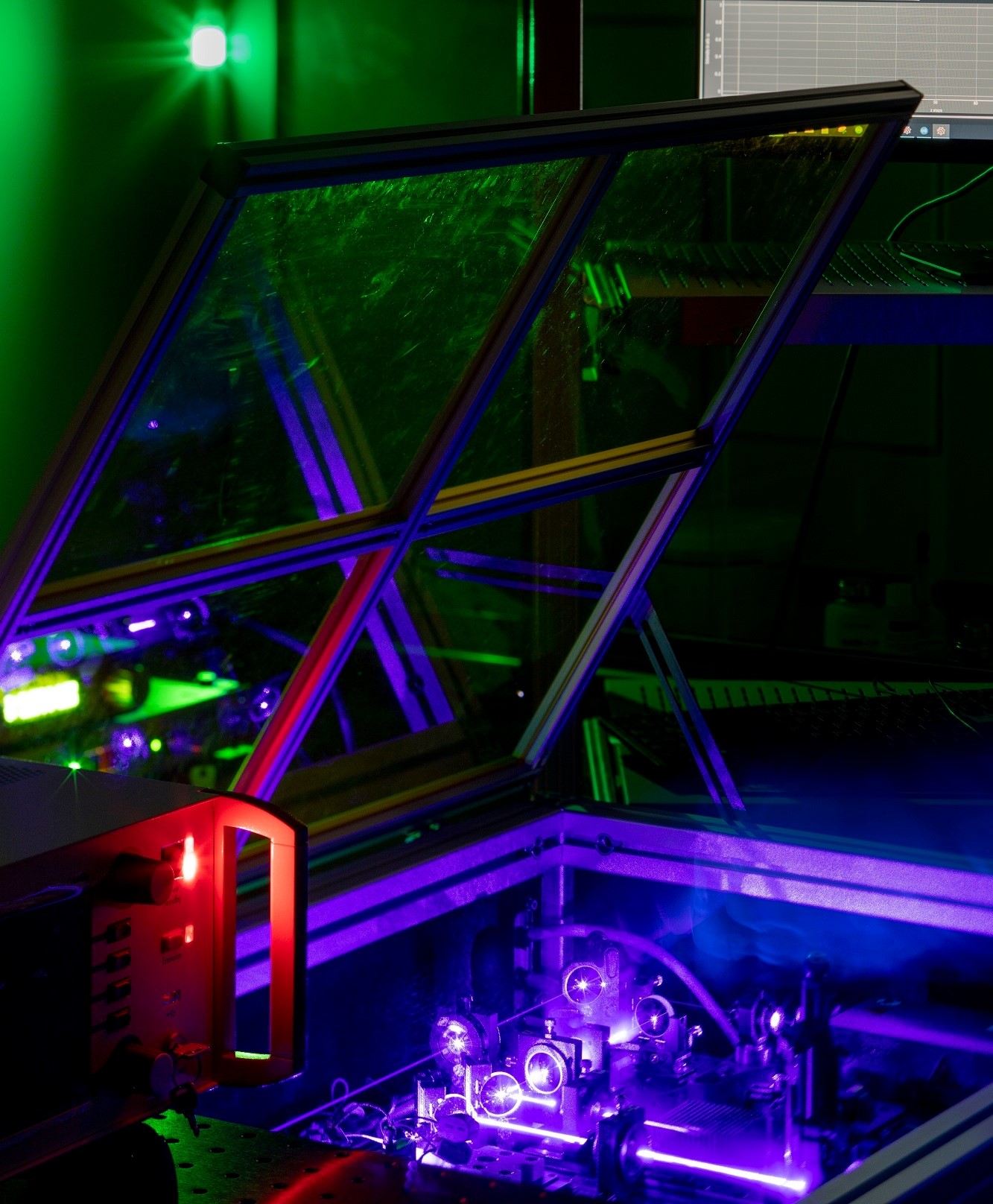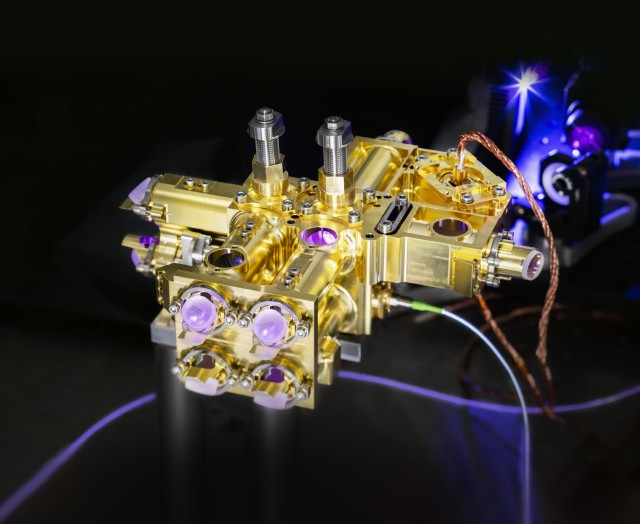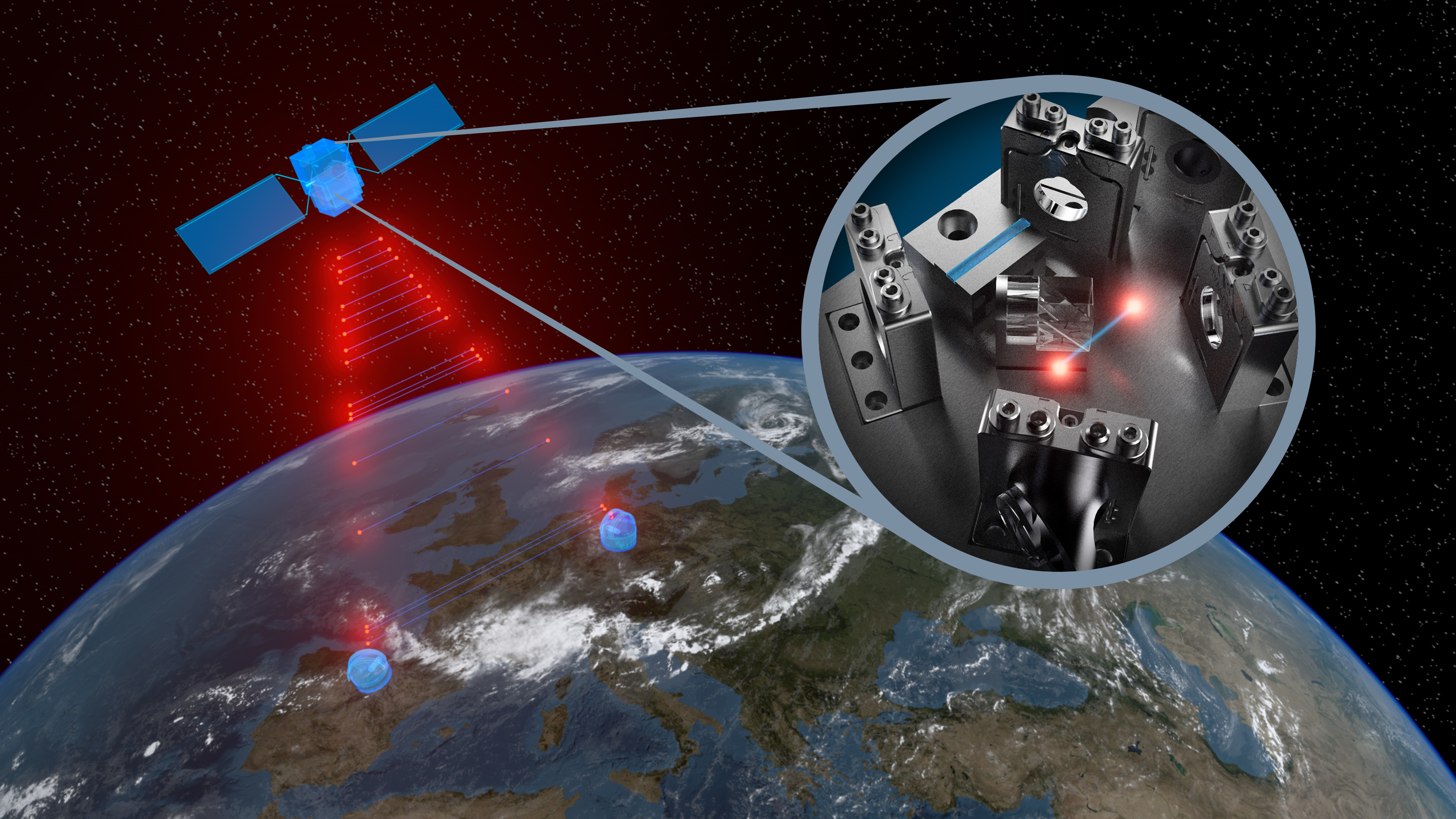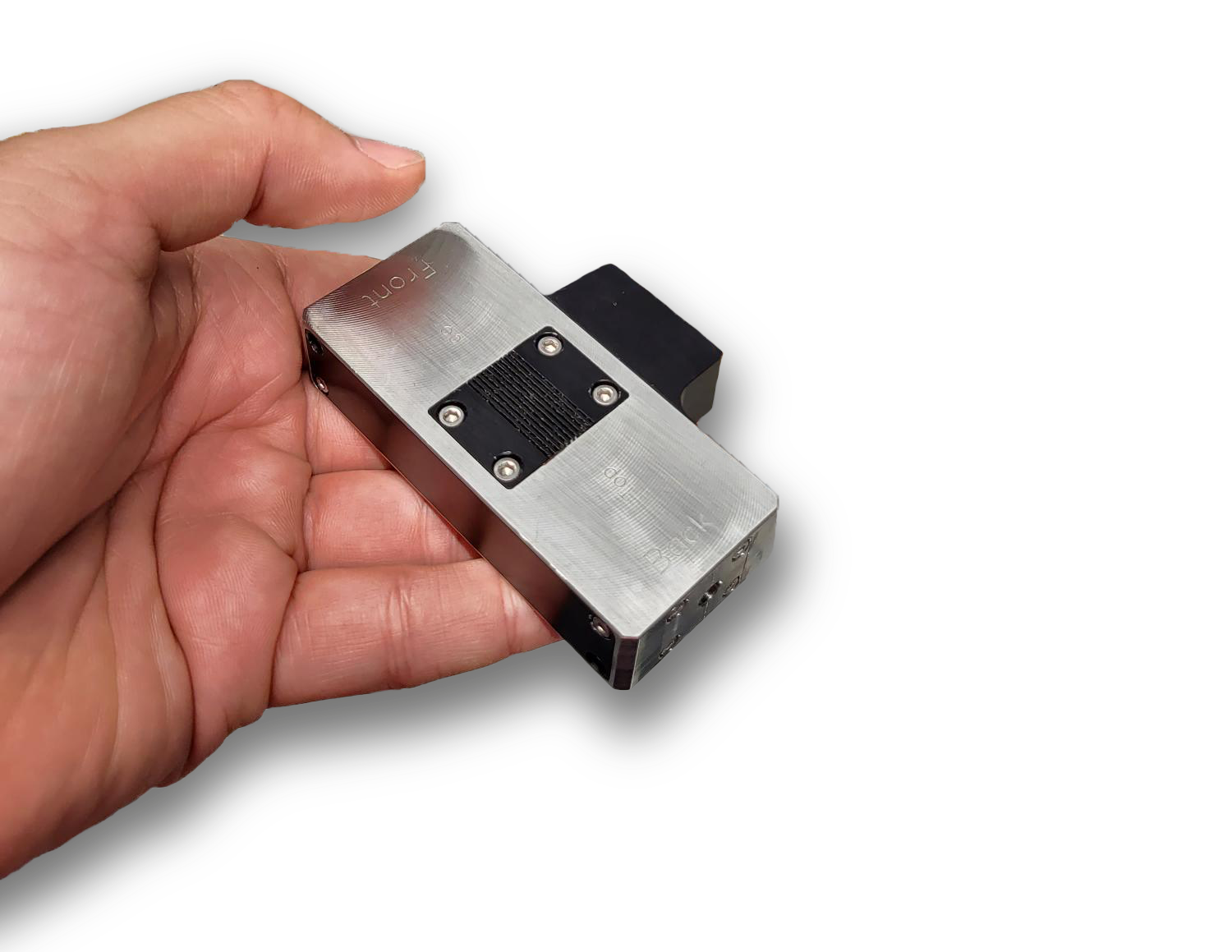Optica Quantum 2.0 | June 23 - 27, 2024
Fraunhofer IOF at Optica Quantum 2.0
Fraunhofer IOF is doing pioneering work in applied research on quantum photonics for scientific and industrial applications. This includes, for example, highly secure communication using quanta or ion traps for quantum computers to ensure the long-term security of our data or low-noise quantum imaging systems, which are used in biomedicine, for example.
Discover our quantum research up close at the Optica Quantum 2.0 conference and exhibition in Rotterdam, the Netherlands. Visit us from June 23 to 27, 2024 at the fair, booth 104 in the Postillion Hotel & Convention Centre WTC Rotterdam.
Our colleagues look forward to talking to you.
Discover photonic technologies of the future with us
At Optica Quantum 2.0, you can expect a range of exhibits from our current research in the field of quantum imaging and quantum-secured communication.
Quantum imaging - making the invisible visible
Quantum-mechanically entangled light particles overcome the limits of classical optics and allow insights into previously invisible wavelength ranges. Researchers at Fraunhofer IOF have taken advantage of this to develop system solutions that open up new fields of application for images with the lowest illumination or wavelength ranges that were previously barely accessible using conventional approaches. As part of various Fraunhofer projects (QUILT, QUANCER), our researchers are developing methods in the field of quantum microscopy with non-detected light for chemically selective imaging, which open up new possibilities, for example in tumor diagnostics.
Our institute will be presenting a quantum imaging demonstrator at Optica Quantum 2.0.
- Quantum imaging for cancer diagnostics (iof.fraunhofer.de)
- New (Quantum) Tool for Biomedicine (iof.fraunhofer.de)
- »QUILT«: Pushing the boundaries of optics (iof.fraunhofer.de)
Quantum sources for highly secure communication
Developments in the field of quantum technologies are largely based on photonic quantum sources. Our recent results include the demonstration of polarization-entangled photon sources with exceptional pairing rates, innovative approaches to quantum-enhanced sensing using multiphoton interference, and the use of spatially and frequency encoded states for high-dimensional quantum information processing.
Discover these quantum sources, among others, at Optica Quantum 2.0.
Entangled photon source for quantum communication
As part of a project funded by the European Space Agency, Fraunhofer IOF has developed a prototype of an efficient and space-qualified entangled photon source. The source is based on a hybrid structure in which a non-linear, periodically poled crystal is pumped from two sides in the arrangement of a Sagnac interferometer. A compact, precision-mechanical, and thermomechanical stable platform was designed for the space-qualified design of the entangled photon source, on which the pump and signal beam path of the source can be effectively and very precisely adjusted using predetermined assembly algorithms.
Quantum source for mini satellites
The entangled photon source is a robust and compact system designed for secure quantum communication in space. The source uses a Sagnac loop interferometer and is housed in a 180 mm x 85 mm x 42 mm package that takes up less than a standard unit. This miniaturized yet effective system was developed for mini satellites, known as cubesats, in low Earth orbit and ensures resilience in challenging space environments.
Millions of photon pairs per second
To realize quantum applications, we require the use of small and efficient entangled photon sources. Here, we show an engineering example of a compact and high performant entangled photon source. It can operate at millions of photon pairs per second per milliwatt of laser pump power, while its broadband light spectrum allows multiplexing capabilities. The source architecture has been tested for entanglement distribution over intercity fiber networks in Germany for applications in quantum cryptography.
- Technologies for quantum communication (iof.fraunhofer.de)
- Making Europe fit for quantum communication via satellite (iof.fraunhofer.de)



